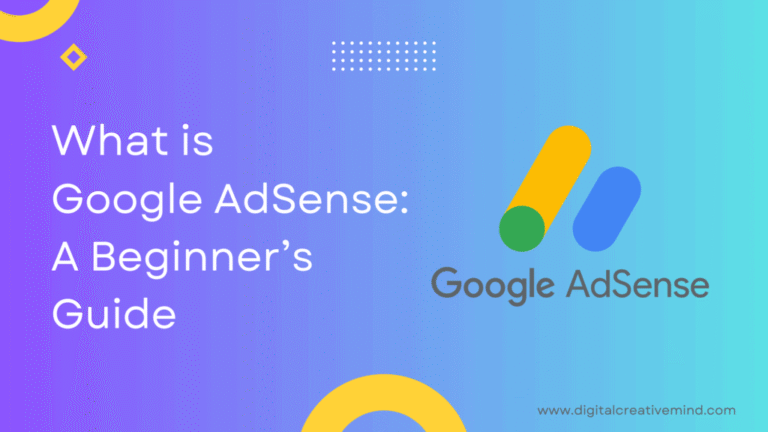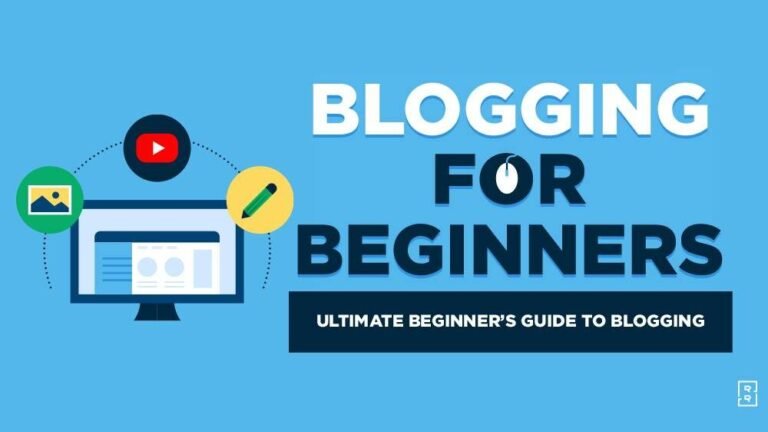Facebook vs Pinterest: Which Platform Is Best for Affiliate Marketing Success?
Affiliate marketing thrives on platforms that help you reach and engage your target audience effectively. Facebook and Pinterest are two popular social media platforms for affiliate marketers, each offering unique advantages and challenges. But which one is the best for your affiliate marketing strategy? In this article, we’ll compare Facebook and Pinterest in detail, considering their audience demographics, content strategies, and conversion potential to help you make an informed decision.
Why Choose Social Media for Affiliate Marketing? (Expanded with Examples and Case Studies)
Social media has transformed the landscape of affiliate marketing, offering unparalleled opportunities to connect with audiences and drive sales. Let’s explore why these platforms are perfect for affiliate marketers, supported by real-world examples and case studies.
1. Reach a Wide Audience
Billions of users actively scroll through social media platforms every day, providing affiliate marketers with access to vast and diverse audiences. Whether your target market consists of niche hobbyists or a broad demographic, social media platforms allow you to reach potential customers globally.
Example:
A lifestyle blogger who focuses on eco-friendly living uses Instagram to share reels about sustainable product swaps. By linking to affiliate products like reusable water bottles and compostable kitchen bags, they’ve successfully tapped into a growing trend.
Case Study:
- Brand: A travel affiliate marketer used Pinterest to create boards like “Affordable European Getaways” featuring travel packages and essentials.
- Result: Their pins garnered over 1 million impressions monthly, driving steady traffic to their blog and affiliate links.
Tip:
Choose platforms where your target audience is most active. For instance, Pinterest works well for visually appealing niches like travel, decor, or crafts, while Facebook is better for building communities around lifestyle and parenting.
2. Encourage Engagement
Social media thrives on interaction. Likes, comments, shares, and direct messages help build trust and foster relationships, which are crucial for encouraging clicks on affiliate links. When users feel connected to you, they are more likely to act on your recommendations.
Example:
A fitness influencer on Facebook created a group called “Stay Fit Together,” where members share their fitness goals. By posting workout tips and promoting affiliate products like resistance bands or protein shakes, the influencer built a loyal community that frequently clicks on their links.
Case Study:
- Brand: A DIY craft affiliate used TikTok to share short tutorials on making home decorations. They included affiliate links to crafting supplies in their bio.
- Result: Their videos went viral, and the links generated a 30% increase in sales during the campaign’s first month.
Tip:
Create interactive content like polls, Q&A sessions, or live streams to deepen engagement. For example, a live unboxing of Etsy products can encourage viewers to make immediate purchases via your affiliate link.
3. Offer Targeted Advertising
One of the biggest advantages of social media is its robust targeting capabilities. Platforms like Facebook and Pinterest allow advertisers to pinpoint audiences based on factors like age, location, interests, and online behaviour. This ensures your affiliate promotions reach the right people, increasing conversion rates.
Example:
A tech affiliate marketer used Facebook Ads to target gamers aged 18–34. Their campaign promoted eBay’s refurbished gaming consoles, highlighting the affordability and reliability of the products.
Case Study:
- Brand: A fashion affiliate marketer on Pinterest ran Promoted Pins showcasing “Summer Outfit Essentials” from online retailers.
- Result: The campaign reached 200,000 users in two weeks, with a 15% increase in affiliate sales.
Tip:
Leverage lookalike audiences on Facebook or keywords on Pinterest to fine-tune your ad campaigns. For example, target Pinterest users searching for “budget wedding decor” by promoting your affiliate links to Etsy’s wedding products.
Choosing the Right Platform Can Significantly Impact Success
The choice of platform depends on your niche, audience, and goals. Combining the massive reach of Facebook with Pinterest’s visual search functionality can amplify your efforts.
Strategic Comparison:
- Facebook: Ideal for fostering relationships, building communities, and retargeting ads.
- Pinterest: Excellent for evergreen traffic, visually appealing niches, and inspiration-focused audiences.
Overview of Facebook and Pinterest
- Monthly Active Users: Over 3 billion (as of 2024), making it the largest social media platform.
- Primary Use: Social networking, sharing updates, and joining groups.
- Best For: Broad campaigns targeting a wide range of demographics.
- Monthly Active Users: 465 million (as of 2024), predominantly women.
- Primary Use: Discovering and saving ideas, often for projects, purchases, and planning.
- Best For: Niche campaigns with a focus on visual appeal and inspiration.
Audience Demographics: Who Are You Targeting?
- Age Range: Most active users are between 25 and 44 years old, but it appeals to all age groups.
- Gender Split: Fairly balanced, with slightly more male users in certain regions.
- Interests: Ideal for diverse niches like technology, lifestyle, parenting, and fitness.
- Age Range: Primarily used by 18 to 49-year-olds, with millennials dominating.
- Gender Split: 60% female users; however, male usage is growing steadily.
- Interests: Best suited for niches like home decor, DIY projects, fashion, and travel.
Key Insight:
- If your niche targets visual inspiration or DIY-focused audiences, Pinterest is likely your best bet. For broad or diverse demographics, Facebook may provide a more extensive reach.
Content Types and Strategies
Facebook Content Strategy
- Posts: Share engaging text posts, videos, and infographics to grab attention.
- Groups: Join or create niche groups to interact directly with a community.
- Ads: Leverage Facebook Ads for targeted campaigns.
- Live Videos: Use live streams to showcase products and engage with followers in real-time.
Example:
A fitness affiliate could post tips for home workouts, include a call-to-action (CTA) for their affiliate product, and target fitness enthusiasts via Facebook Ads.
Pinterest Content Strategy
- Pins: Create high-quality, visually appealing pins linked to your affiliate products.
- Boards: Organize content into themed boards, like “Budget-Friendly Travel Gear” or “Modern Home Decor.”
- Idea Pins: Share video tutorials or step-by-step guides to attract pinners.
- Keywords: Use SEO-friendly titles and descriptions to ensure pins appear in search results.
Example:
A travel blogger could create a board titled “Best Packing Essentials” with affiliate links to suitcases, travel pillows, and organizers.
Traffic Generation: Organic vs Paid
- Organic Reach: Declining due to algorithm changes, but niche groups and pages can still drive traffic.
- Paid Ads: Facebook Ads offer advanced targeting options based on age, location, interests, and behaviour.
Tip:
Combine organic and paid strategies by sharing engaging posts and boosting top-performing content to reach a larger audience.
- Organic Reach: Strong due to its search engine functionality. SEO-friendly pins can generate traffic for years.
- Paid Ads: Pinterest Ads (Promoted Pins) help boost visibility and drive traffic to affiliate links.
Tip:
Focus on creating evergreen pins that align with trending keywords to maximize organic reach.
Conversion Potential: Which Platform Drives More Sales?
- User Intent: Users are often on Facebook to socialize, so they may not be in a buying mindset.
- Conversion Tips: Use retargeting ads to reach users who previously interacted with your content.
- User Intent: Pinners actively seek ideas and inspiration, often leading to higher purchase intent.
- Conversion Tips: Include direct CTAs like “Shop Now” or “Learn More” in your pin descriptions.
Key Insight:
Pinterest typically has a higher purchase intent, making it better for direct affiliate sales, while Facebook excels in building relationships and retargeting.
Pros and Cons of Facebook for Affiliate Marketing
Pros:
- Massive audience reach.
- Advanced targeting with Facebook Ads.
- Opportunities to engage directly via groups and live streams.
Cons:
- Declining organic reach.
- Users may not have an immediate purchase intent.
Pros and Cons of Pinterest for Affiliate Marketing
Pros:
- Strong organic reach due to search functionality.
- High purchase intent among users.
- Content has a longer shelf life.
Cons:
- Smaller user base compared to Facebook.
- Requires consistent creation of visually appealing content.
Case Studies: Success Stories from Facebook and Pinterest
Facebook Success Story:
A fashion influencer created a private group called “Budget Style Finds” to share deals and affiliate links. By fostering a tight-knit community, they generated over $5,000 monthly in affiliate commissions.
Pinterest Success Story:
A home decor blogger pinned affiliate products under themed boards like “Rustic Kitchen Decor.” Their evergreen pins ranked in Pinterest searches, driving consistent traffic and sales for years.
Final Verdict: Which Platform Should You Choose?
Social media’s ability to reach vast audiences, encourage meaningful engagement, and offer precise targeting makes it a powerful tool for affiliate marketers. By leveraging these strengths with well-crafted strategies, you can grow your affiliate marketing business and maximize conversions.
- Choose Facebook If:
- You’re targeting a broad audience.
- You plan to use paid advertising extensively.
- Building a community is part of your strategy.
- Choose Pinterest If:
- Your niche relies on visuals (e.g., fashion, DIY, home decor).
- You want to benefit from evergreen traffic.
- Your target audience includes millennials and women.
For many affiliate marketers, combining the strengths of both platforms offers the best results. Use Facebook for community-building and retargeting while leveraging Pinterest for evergreen, high-intent traffic


